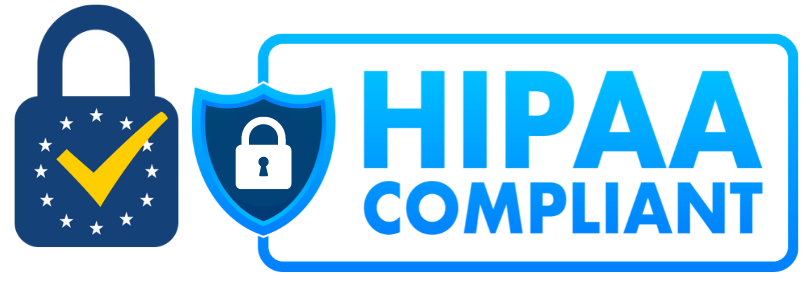Contract Preparation: 7 Mistakes You’ll Regret Later
Contract preparation can feel like navigating a legal minefield, one misstep and the consequences can be costly. Whether you’re drafting your first agreement or managing dozens with contract preparation software, understanding the process is crucial.
Many professionals overlook simple mistakes in the preparation of contract documents, from permit and contract document preparation to the finer details that protect your interests. In this guide, we’ll highlight seven common mistakes you’ll regret later, showing you how to avoid them.
By mastering these strategies, you’ll save time, reduce risk, and make your contract preparation process smoother and more effective with Aisign.
1. Ignoring Modern Contract Management Tools
Many businesses still use emails, spreadsheets, or paper to keep track of contracts. These old ways can make it easy to lose documents, miss deadlines, or make mistakes. Using modern tools for contract preparation makes the process faster and safer.
You can write, send, and track contracts all in one place. These tools also help reduce errors and save time for busy teams. Imagine catching a mistake before it causes problems, this is why better contract tools are so important.
2. Disorganized Contract Storage Practices with Aisign
Many contracts are kept in different folders, emails, or cabinets. This makes it hard to find the right document and can waste a lot of time. AiSign keeps all your contracts, permit papers, and important files in one safe place.
You and your team can search and access them anytime. Using AiSign makes your contract preparation easier and safer. Losing a contract is not just annoying, it can cause big problems, but good software can fix this.

3. Skipping Standardized Review Workflows
Contract review is often treated as an afterthought, with inconsistent approvals across legal, finance, and management teams. This patchwork approach increases the likelihood of errors, vague terms, or overlooked clauses.
Standardized workflows ensure every agreement undergoes proper scrutiny before execution. With clear roles and sequences, your team avoids bottlenecks while reducing risk. Think of it as a quality control system, consistent, predictable, and error-resistant.
Neglecting this step often results in disputes or costly amendments later, proving that structure in the preparation of contract documents is not optional, it’s essential for protecting your business.
4. Overlooking Oversight and Monitoring with Aisign
Many companies think a contract is finished once it is signed. They forget about deadlines and tasks that come after. Missing these can cause big problems like lost money or broken agreements.
AiSign helps you watch important dates, check performance, and send alerts automatically. Teams can see the status of every contract in real time. Using AiSign makes contract preparation more than a one-time job.
It helps prevent mistakes, saves money, and keeps contracts working as they should.
5. Relying on Traditional Signatures
Printing, mailing, and scanning contracts takes a lot of time. It can also make it easy to lose papers or make mistakes. Electronic signatures and other digital ways make contract preparation faster and safer.
They also protect the law and reduce delays. Paper contracts may feel familiar, but they are slower and can cause more errors. Using digital tools helps businesses save time and keep everything clear and correct.
In contract preparation, being fast and reliable is more important than doing things the old way. The right method helps finish contracts on time without mistakes.
6. Ignoring Templates and Clauses with Aisign
Writing every contract from scratch takes a lot of time and can cause mistakes. Words may not match, some important parts can be missing, and checking takes longer. AiSign has ready-made templates that help make contracts faster and correct.
Templates keep important parts in place and let your team change only what is needed. Using templates saves time, reduces mistakes, and makes records more accurate. Skipping templates may seem easier, but it can cause problems later.
Good templates help contracts stay clear and simple.

7. Neglecting Collaboration Across Teams
Contracts aren’t just a legal department responsibility. Sales, finance, and operations all need visibility during drafting and review. Poor collaboration leads to slow cycles, overlooked details, and friction between teams.
Multi-stakeholder access makes contracts, permits, and preparation documents visible in real time. Everyone stays informed, input is centralized, and errors are minimized. In modern contract preparation, collaboration isn’t optional, it’s critical.
When stakeholders are aligned from the start, contracts are executed faster, compliance improves, and the organization avoids costly misunderstandings. Visibility transforms contracts from isolated paperwork into strategic business tools.
FAQs
What are the 7 conditions of a contract?
To be considered a contract, there must be seven things in the contract, including: offer, acceptance, intention to enter into legal agreement, consideration (something of value) and capacity (the people are capable of making the contract), free consent (there should be no pressure or trick) and lawful purpose.
What are four types of mistakes that can invalidate a contract?
The contract may be canceled when there is a mistake in one of the following aspects: 1) facts (incorrect information), 2) law (incorrect interpretation of rules), 3) identity (incorrect person) or 4) terms (incorrect interpretation of words).
What are the types of mistakes that can happen in a contract?
Mistakes in a contract can happen about facts, the law, the identity of someone, or what the words mean. They can also happen if someone misunderstands the contract or is tricked. Mistakes can make the contract unfair or invalid.
What is the mistake doctrine of contracts?
The mistake doctrine says a contract may not be valid if one or both people made a serious mistake. It protects people from agreements they didn’t really understand. The mistake has to be about something important in the contract.
What are the three mistakes in contract law?
The three main mistakes are: 1) a mistake about facts, 2) a mistake about the law, and 3) a mistake about who you are making the contract with. These mistakes can make a contract invalid or unfair.
Final Thoughts
Contracts are very important for business and personal agreements. Mistakes in contract preparation, like unclear terms or missing information, can cause big problems later. Following a transparent process helps everyone understand their duties and keeps agreements legal and fair.
Tools like AiSign make it easier to create, send, and manage contracts, including permit and contract document preparation. With AiSign, you can use templates, track deadlines, and get secure e-signatures from anywhere.
Being careful and using the right tools helps you avoid mistakes, save time, and make your contracts safe and strong.
Try AiSign Free For 30 Days, No Credit Card Required
Experience ease and efficiency in managing your business contracts. Our platform lets you create contracts with AI-powered tools, send and sign documents online, and more. Say goodbye to paperwork complexities and enjoy streamlined workflows. AiSign’s tools are designed for freelancers, small businesses, and large corporations. Sign up today for a free 30-day trial.

About The Author
Julie Fortuna is a talented writer for AiSign, specializing in simplifying complex ideas. With a flair for clear and engaging communication, Julie helps readers understand the latest strategies and trends.





